🌿 Download our New 44 Page Catalog 🌿

FREE SHIPPING !!

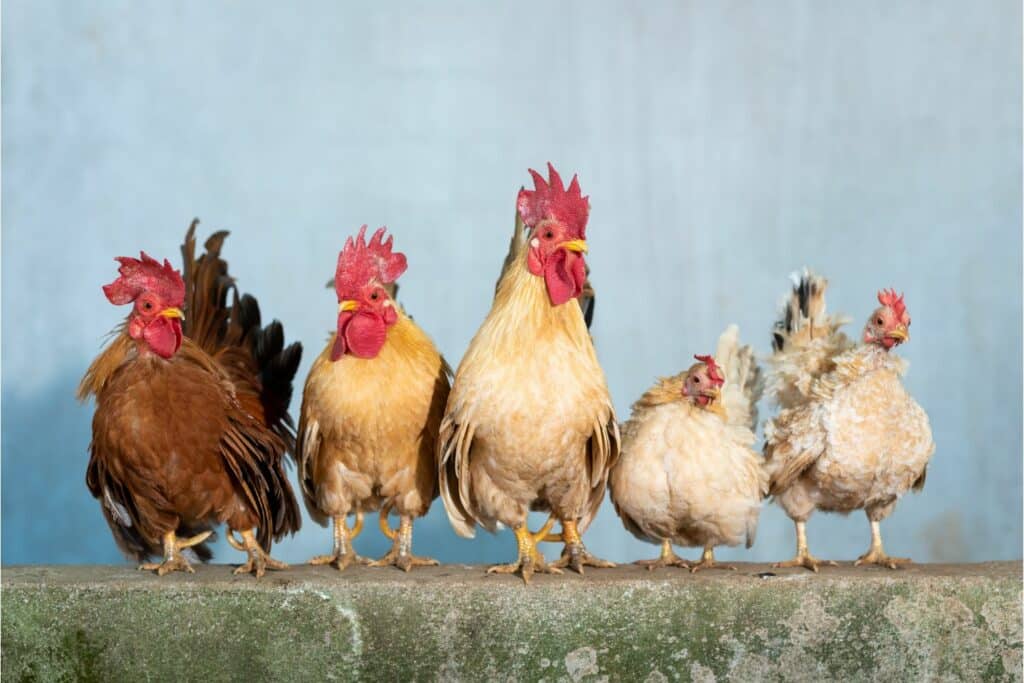
Can chickens eat…? Chickens are omnivorous creatures, this fact gives them the ability to eat a wide range of foods such as grains, fruits, seeds, and even small insects. But, just because they can eat a variety of foods, doesn’t mean that all foods are safe or healthy for them. In fact, certain types of foods can be harmful or toxic to chickens.
Feeding chickens the wrong types of food can cause serious health problems, and in some cases, it can be fatal. Some foods can also interfere with the absorption of essential nutrients or affect the taste of the chicken eggs. As a chicken owner, it is important to know and be aware of what your chickens can and cannot eat in order to keep them healthy and safe.
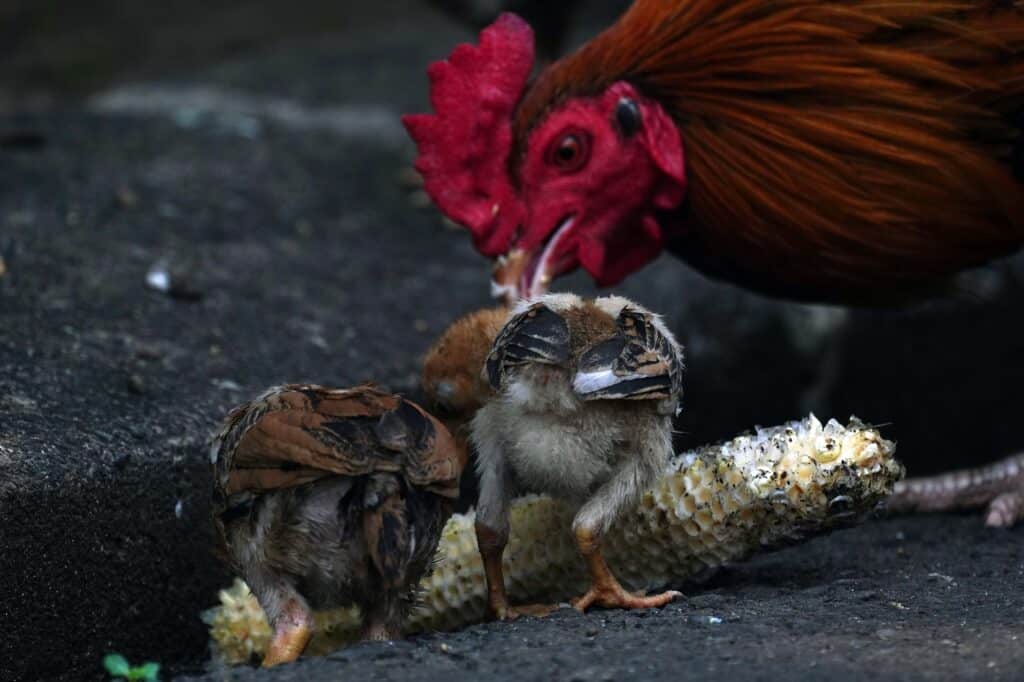
Yes, chickens can eat vegetables. Vegetables can provide important nutrients for chickens, such as vitamins and minerals. Some examples of vegetables that are safe and healthy for chickens to eat include:
While chickens can eat many types of vegetables, there some vegetables are not recommended because of side effects if not given correctly. Below are some examples of vegetables to avoid feeding your chickens.
Onions and garlic contain compounds that can cause anemia and other health problems in your chickens. Raw or undercooked beans and other legumes contain a substance called lectin, which can be toxic to chickens. Potatoes, tomatoes, and eggplants contain solanine which can be harmful in large quantities.
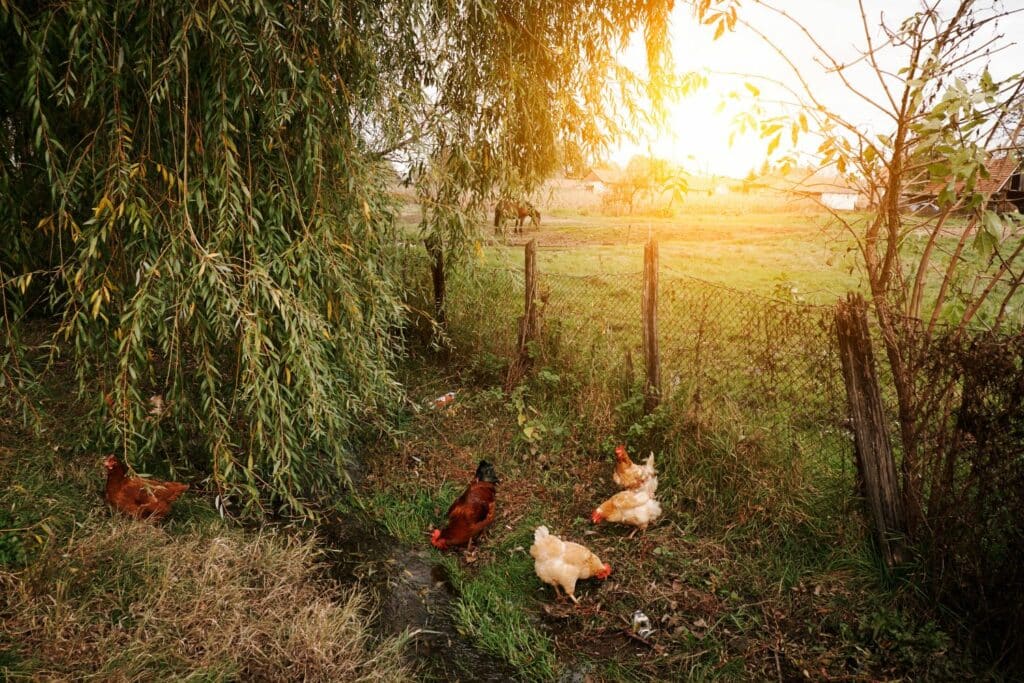
Have you been wondering if kale has the same health benefits on chickens as it does on humans? Can chickens eat kale? Yes, chickens can eat kale. This leafy green vegetable is high in vitamins and minerals. It carries vitamin A and calcium, which are beneficial for maintaining healthy bones and egg production in chickens. While serving kale to your flock, it is advised that it gets chopped or shredded into small pieces to make it easier for the chickens to digest.
Benefits of kale to your flock
As with any new food, it is best if you try to give kale to your chicken gradually and monitor the health and behavior of your chickens’ to make sure they are tolerating it. Because overconsumption of kale can cause digestive problems such as diarrhea or crop impaction.
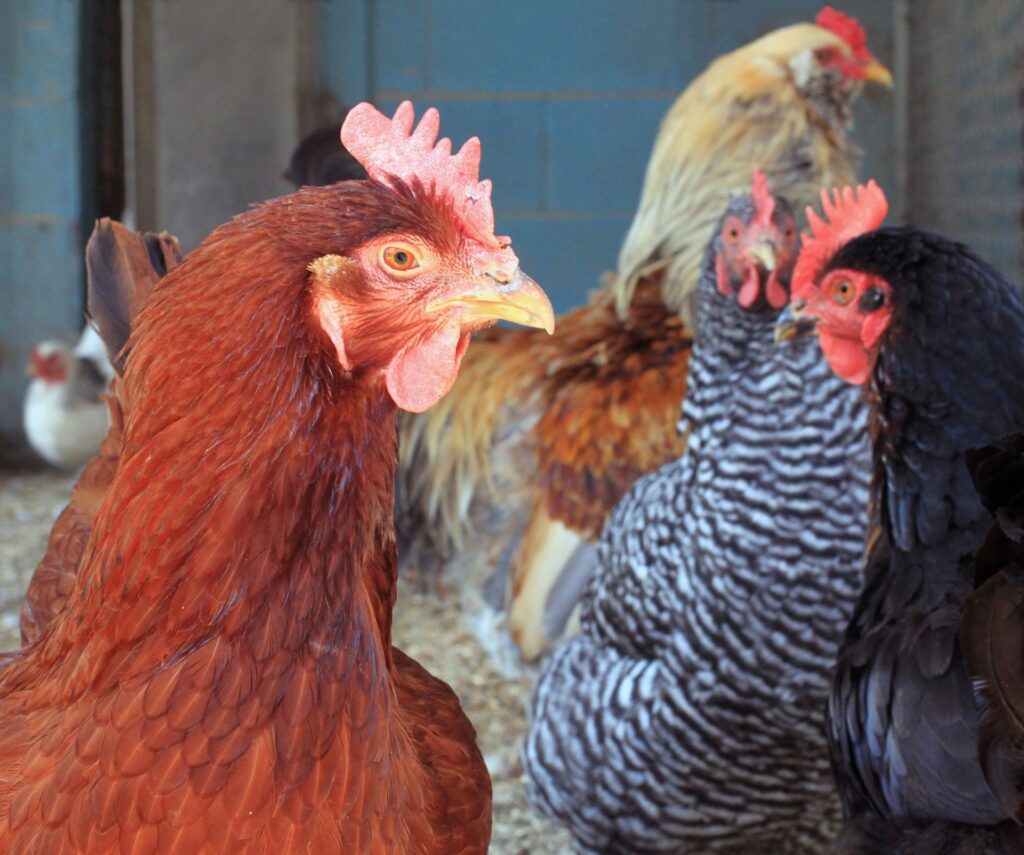
Brussels sprouts are a good source of vitamins, minerals, and fiber, which are all important for a chicken’s overall health. Brussels sprouts contain vitamin C, which can be helpful in supporting the immune system. They also contain vitamin K, which is important for blood clotting. Additionally, brussels sprouts contain folate, which can help in supporting healthy cell growth and development.
However, it is important to remember that do not feed your chickens brussels sprouts in excess amounts, make sure that you are feeding your chickens a moderate amount.
Pros:
Cons:
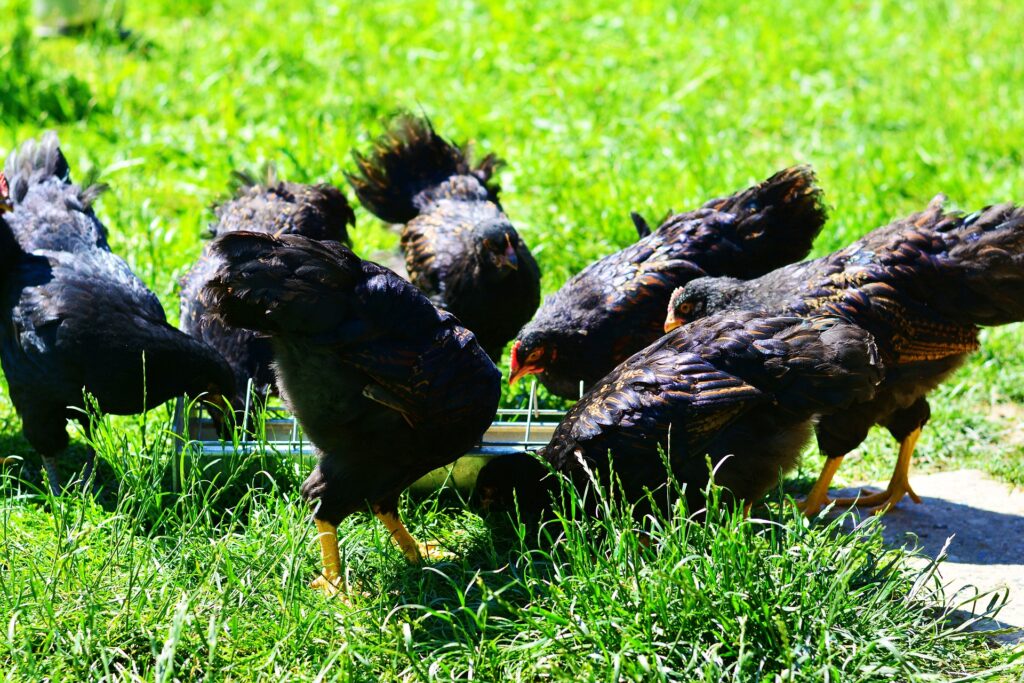
Yes, chickens can eat lettuce. However, it’s important to keep in mind that it should only be given to chickens as a treat or supplement to their regular feed and not as a main source of nutrition. Make sure you chop up the lettuce before serving it to your flock.
Benefits of lettuce
Provides enrichment: Offering a variety of foods, including lettuce, can provide mental stimulation and enrichment for chickens, which can help keep them happy and healthy.
Can chickens eat spinach? Yes, chickens can eat spinach. Spinach is a nutritious vegetable that is safe for chickens to eat. Spinach contains vitamin A, vitamin C, calcium, and iron. Just like all other vegetables, it is advised to feed it to your chickens in moderation, it is best to limit the consumption. Spinach is high in oxalic acid, which can bind with calcium and prevent its absorption, which may lead to kidney damage and nutritional deficiencies.
Absolutely, chickens can eat basil. In fact, basil offers numerous health advantages, including enhanced mucous membrane health, improved respiratory health, and the promotion of vibrant orange egg yolks.
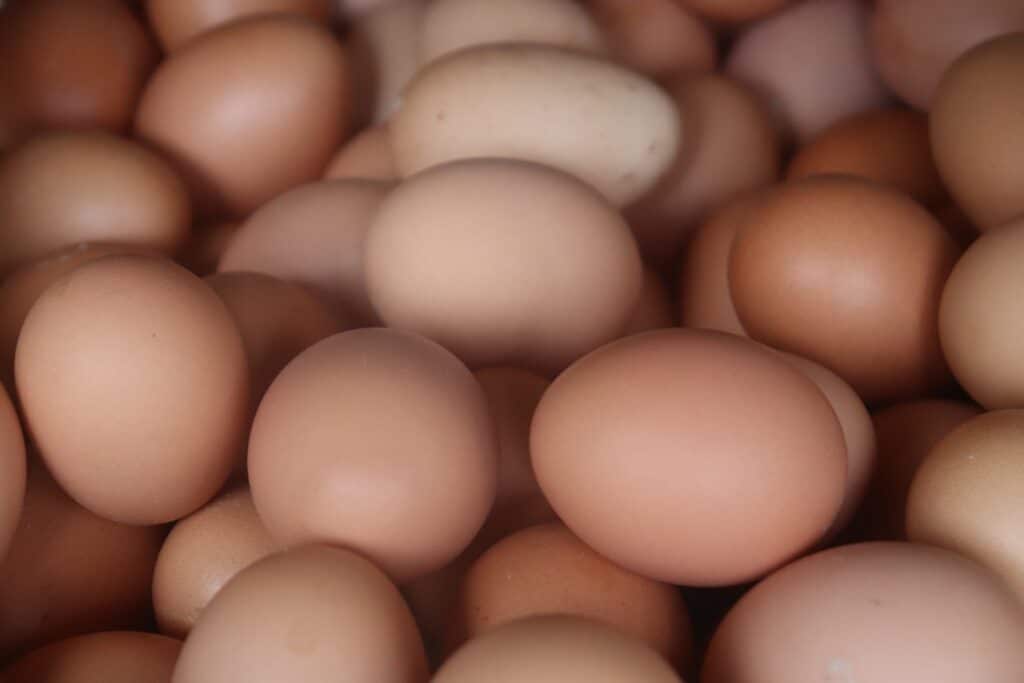
Can chickens eat raw potatoes? No! Raw potatoes are members of the nightshade family, and because of that, it makes their leaves are toxic to many animals. Raw potatoes contain a toxic compound called solanine which can be harmful to chickens. Solanine is primarily found in the green parts of potatoes but it can also be found in unripe or raw potatoes.
Feeding raw potatoes to your chickens can cause different health issues such as digestive problems, decrease egg production, and even become fatal in extreme cases If you’d like to feed your chickens potatoes, it is recommended you cook them first in order to eliminate any potentially harmful toxins.
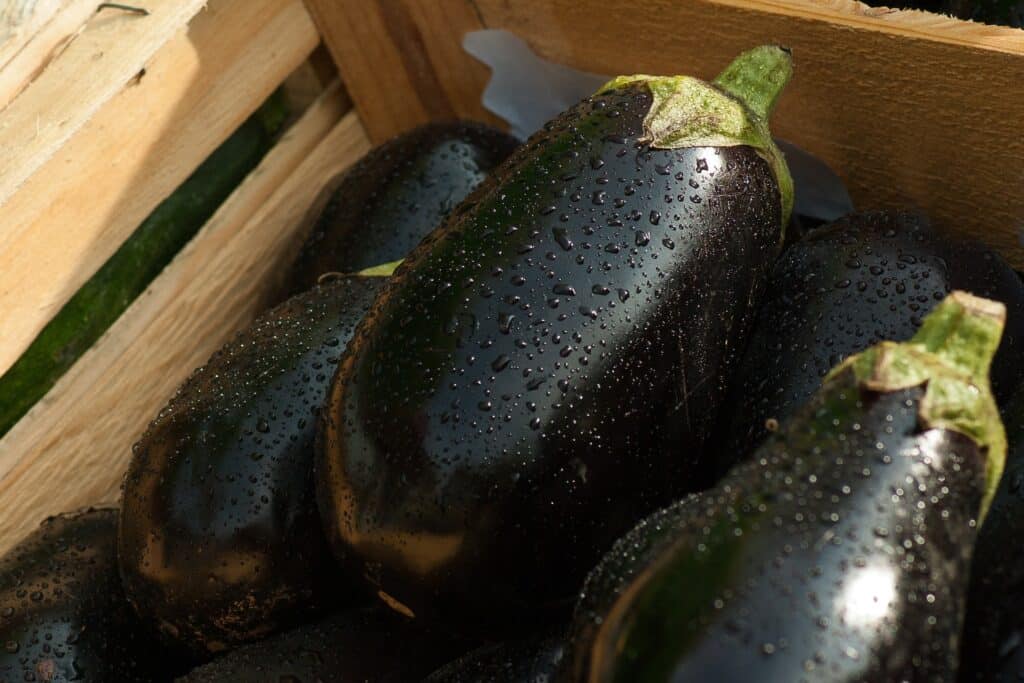
Can chickens eat eggplants? Yes, they can eat eggplants in moderation as part of a varied and balanced diet. They are good for chickens because they contain vitamin C, potassium, and dietary fiber. But be aware that chickens shouldn’t only be fed eggplants, they should be given a balanced diet of a variety of food such as grains, seeds, fruits, vegetables, and insects or other sources of protein.
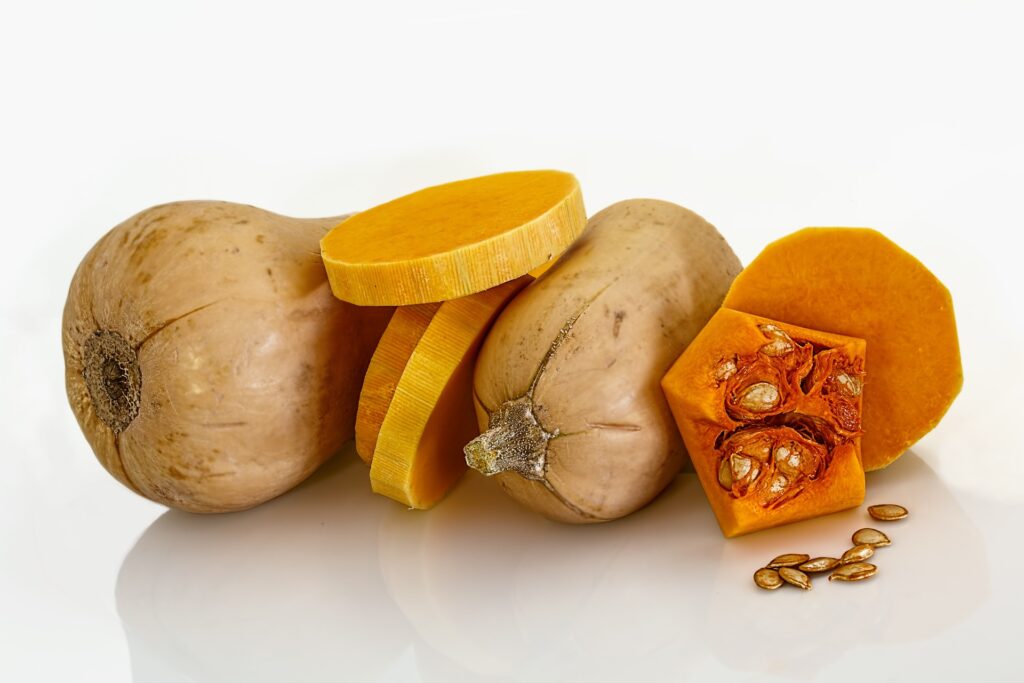
Yes! Chickens can eat squash! In fact, squash is healthy and nutritious for chickens. They are a good source of vitamins A and C, fiber, and potassium. You can feed your chickens raw or cooked squash but avoid giving them moldy or rotten squash. Make sure you cut the squash into small pieces before feeding it to your chickens in order to avoid choking.
Benefits of squash to your chickens:
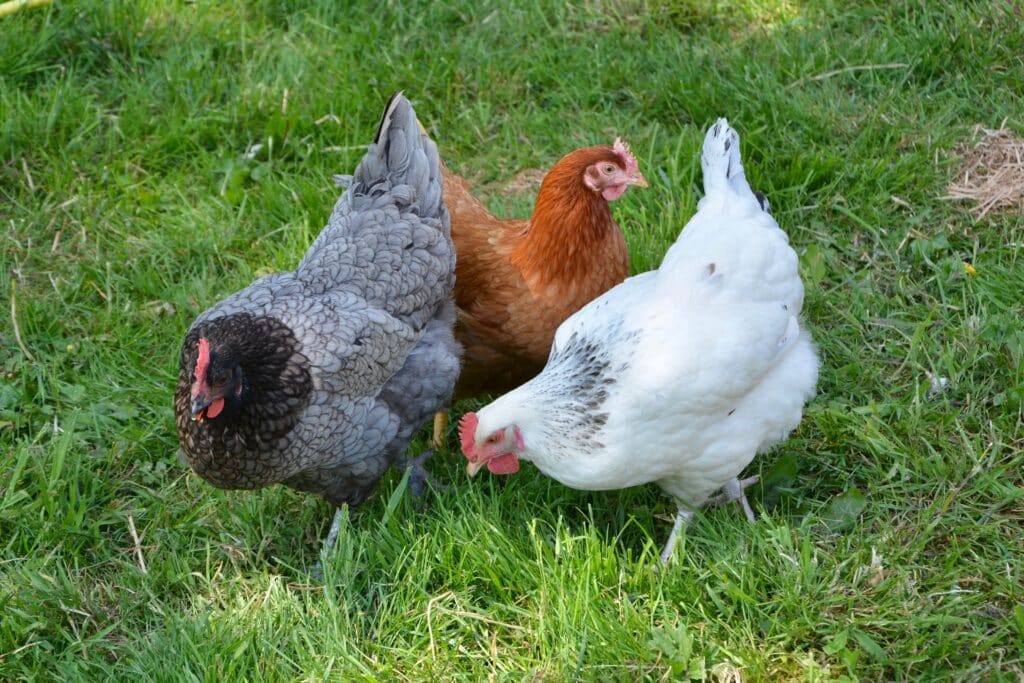
Can chickens eat radishes? Yes, chickens can eat radishes. Radishes are a good source of vitamins and minerals, they contain vitamin C, potassium, and folate. These minerals and vitamins can be beneficial for the overall health of your chickens. Chickens can even eat radish leaves if served. Just be sure to grate or chop your radish into small pieces to make it easier for your chickens to digest.
Broccoli is one of those special treats that chickens want, they will try to have them any chance they get. So yes, chickens can eat broccoli. Broccoli has low calories and is high in fiber because it is a cruciferous vegetable. It contains protein, potassium, vitamin C, Vitamin K, and calcium. If you want to raise healthy and happy chickens then you need all those minerals and vitamins.
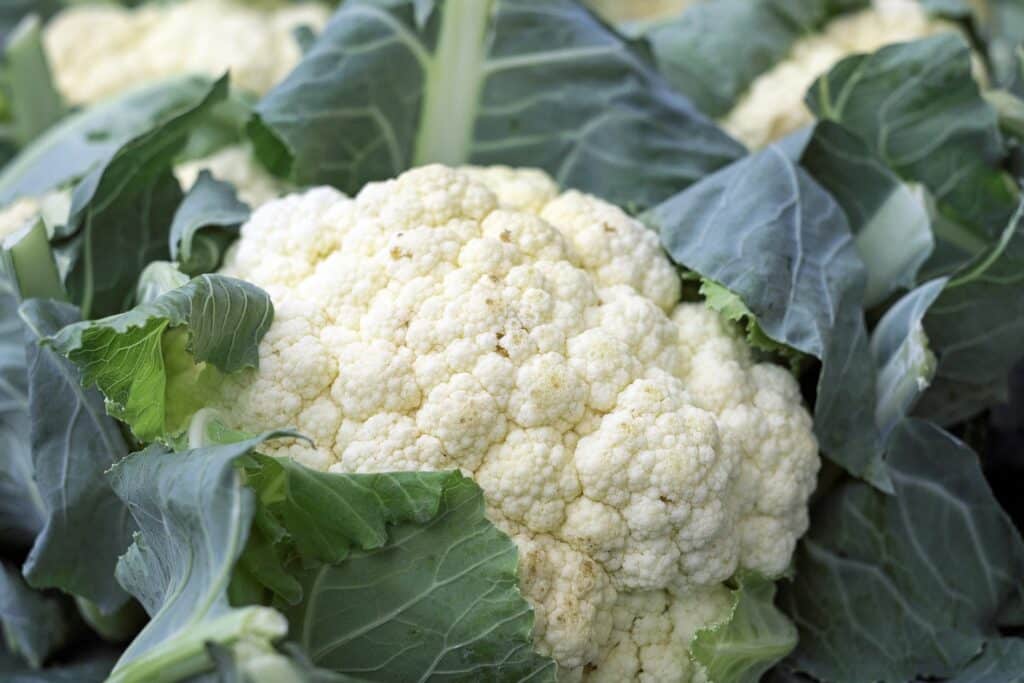
In moderation, yes chickens can eat cauliflower. Cauliflowers are nutritious and safe for your chickens to consume. You can either cook them or feed them to your chickens raw. It is important to consider only feeding your chickens cauliflower as a treat and not replace their regular feed. Make sure you chop the cauliflower into small pieces so that your chickens don’t choke on them.
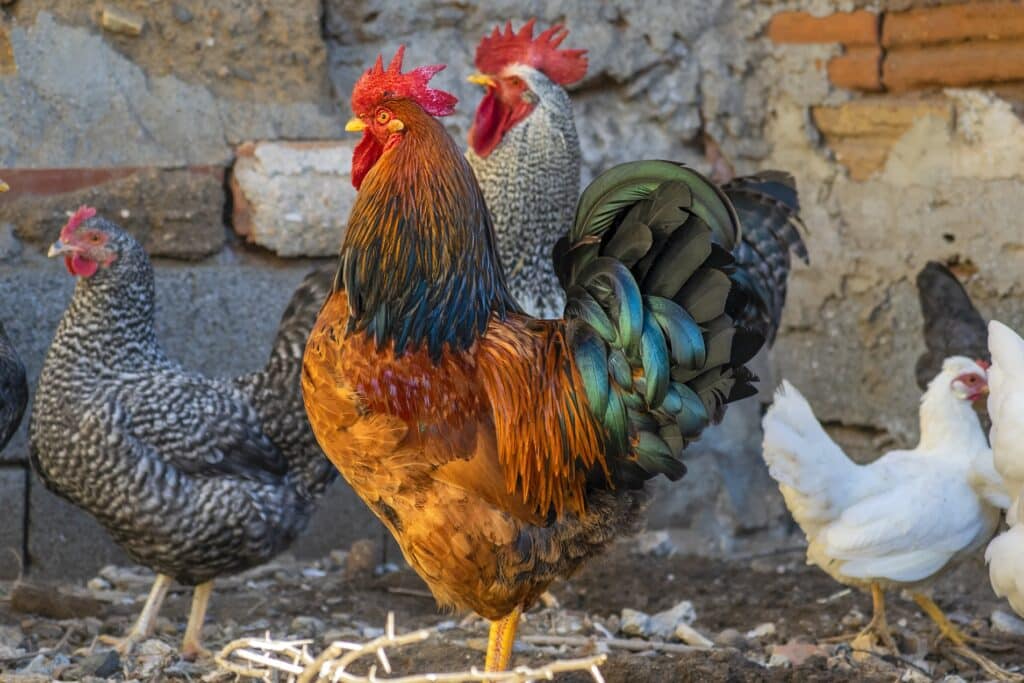
Cabbage is safe for your chickens, it is considered to be a cruciferous vegetable. Yes, chickens can eat cabbage. It contains nutrients such as fiber and vitamin C and can be fed to your chickens raw or cooked.
No, chickens should not consume acorns, as they contain toxins. It’s important to avoid feeding them acorns, oak leaves, buds, and twigs. Freshly fallen acorns and young leaves contain the most tannins, making them the most toxic to chickens.
Yes, chickens can eat apple pie. However, it’s advisable to offer sugary treats in moderation, as they are not the most nutritious options for their diet.
Certainly, chickens can safely consume ripe baby plum tomatoes. However, it’s important to note that green tomatoes, leaves, and plant stems are toxic to chickens and should be avoided.
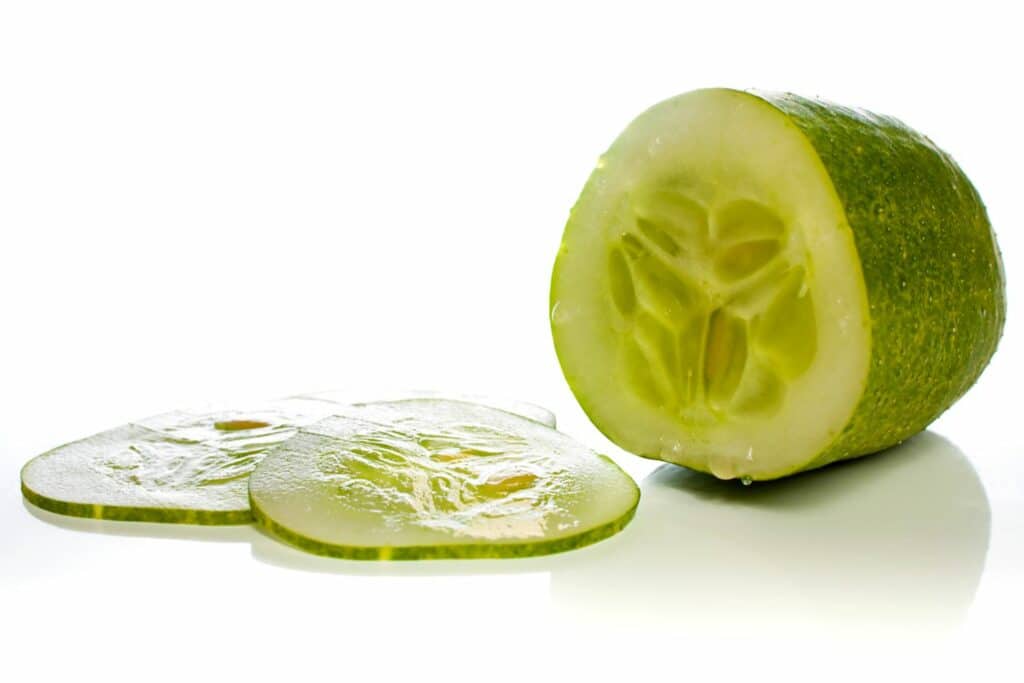
Yes, chickens can eat cucumbers. Cucumbers are healthy for your birds because they are full of vitamins and minerals. They also contain antioxidant properties and are full of water, this will help to keep your chickens hydrated. You can feed cucumbers to your chickens raw, cooked, or even pickled.
Yes, chickens can eat asparagus. You can feed asparagus to your chickens fresh or cooked, they will have at it. For easy digestion, make sure you chop the asparagus into small pieces.
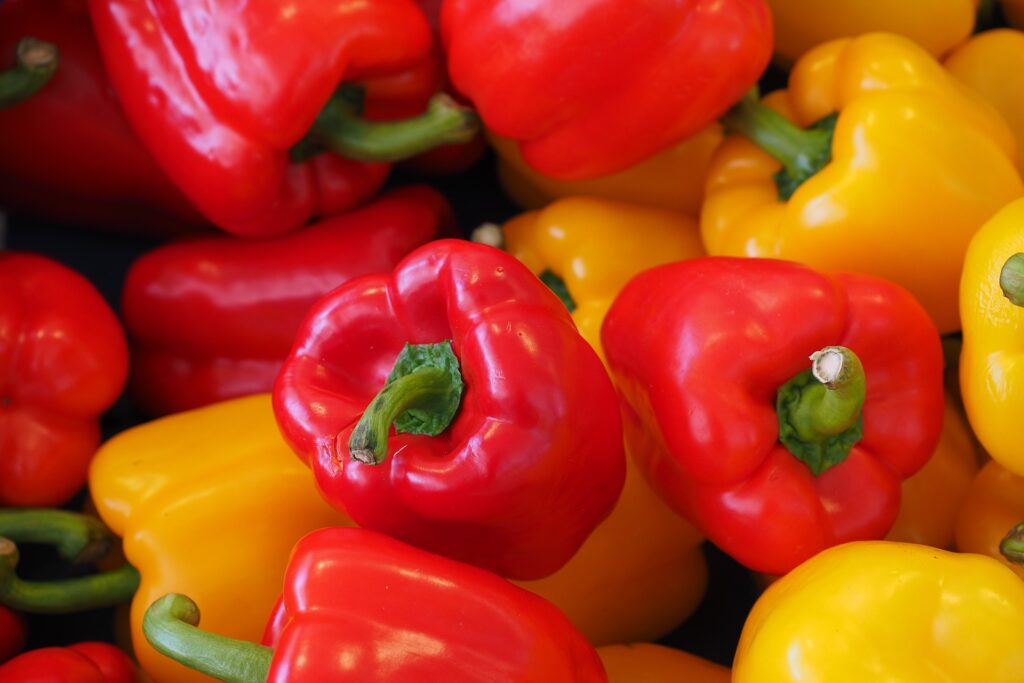
Chickens can eat bell peppers. However, be careful when feeding them so that you do not give them the stem. Some parts such as the flower, and stem of the bell pepper are toxic, they contain solanine.
No, chickens cannot eat bell pepper leaves. Although ripe peppers are safe for chickens, unripe peppers, leaves, and plant stems contain solanine and are toxic to chickens.
Whether you want to feed your chickens fresh or cooked carrots, yes chickens can eat carrots. You can either give your chickens the whole thing of carrot, shred it, or chop it into small pieces so that it can be easy for them to eat.
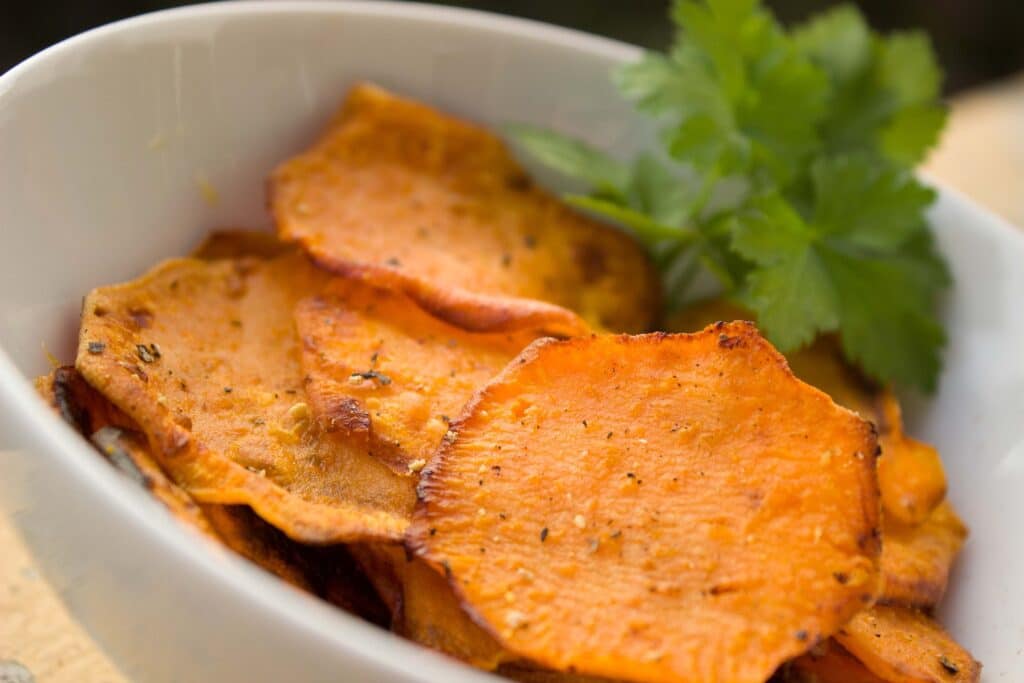
No matter if they are cooked or raw, chickens can eat sweet potatoes. Unlike normal potatoes, sweet potatoes do not contain solanine.
Feeding chickens a varied diet that includes different types of vegetables can also help to prevent boredom and negative behaviors, such as feather pecking and cannibalism. Providing a diverse range of foods can help to keep chickens interested in their diet and prevent them from developing a preference for just one type of food.
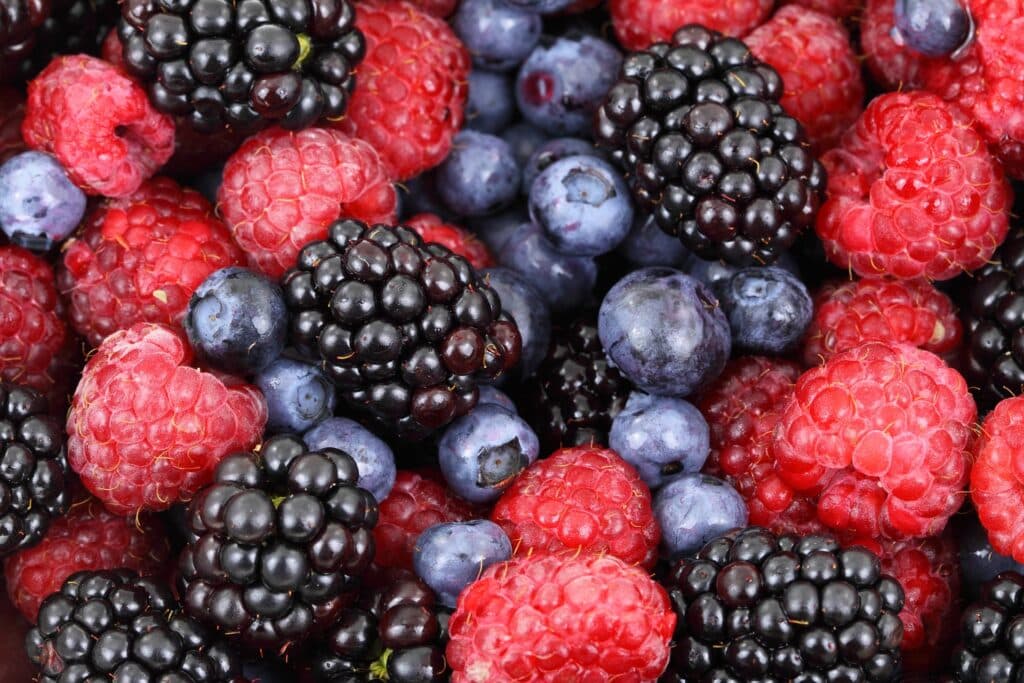
Yes, chickens can eat fruits as part of their balanced diet. They provide additional vitamins, minerals, and fiber. But, it is important to be aware that fruits should only make up a small portion of a chicken’s diet. It is essential to keep the feeding amount moderate when offering fruits to your chickens as some fruits can be high in sugar. It is important to provide fruits that are safe for chickens to eat because some fruits are toxic such as avocados or citrus fruits.
Some of the safest and healthy fruits include berries, melons, apples, and bananas. It is advised that you cut the fruits into small pieces to it easier for the chickens to eat.
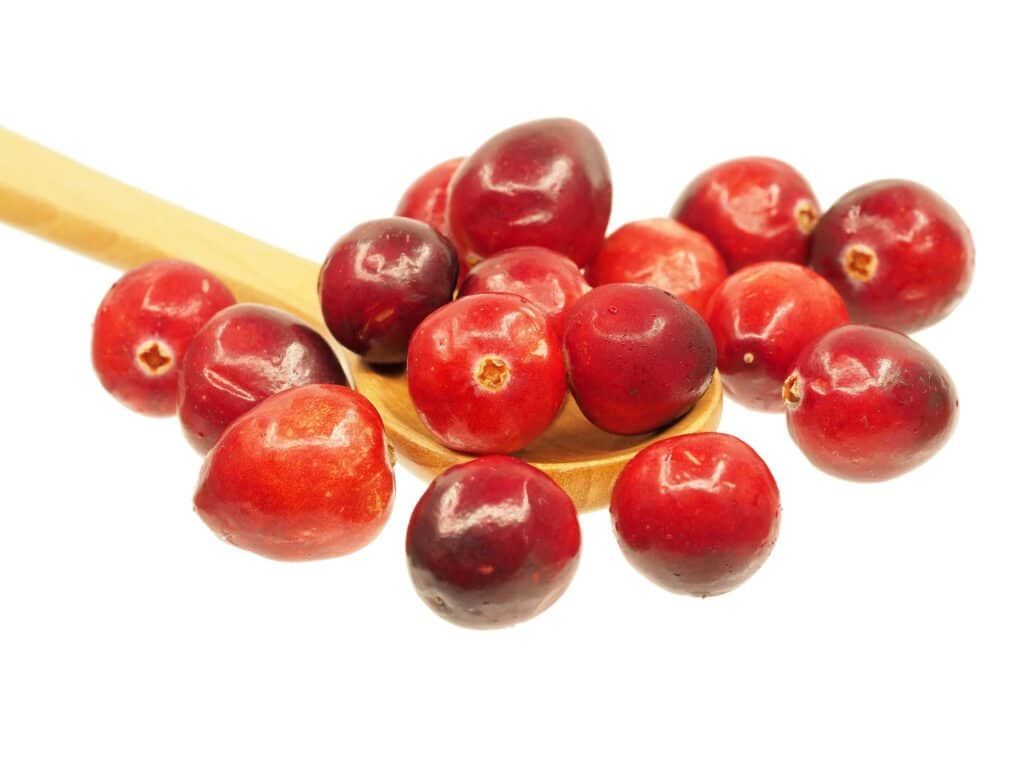
Chickens can eat cranberries. Cranberries are not toxic to chickens and it is a good source of nutrition, that includes vitamins and antioxidants. It is important to note that cranberries should not be the main feed. Make sure the cranberries are fresh and unsweetened before feeding them to your chickens. Avoided added sugar cranberries such as dried cranberries and cranberry products.
Potential benefits of moderately feeding cranberries to your chickens:
Promotes digestive health: The proanthocyanidins compound in cranberries prevents the growth of harmful bacteria in the digestive tract of chickens. This helps improve digestive health and reduces the risk of diarrhea.
Yes, chickens can eat whole fish, including raw fish, bones, heads, skins, and guts. However, it’s important to avoid providing chickens with deep-fried or heavily buttered fish, as it contains excessive levels of fat.
Yes, chickens can enjoy apples as part of their diet. However, it’s important to note that they should not eat apple seeds because they contain small amounts of cyanide. If they happen to ingest a few seeds, there is no need to panic.
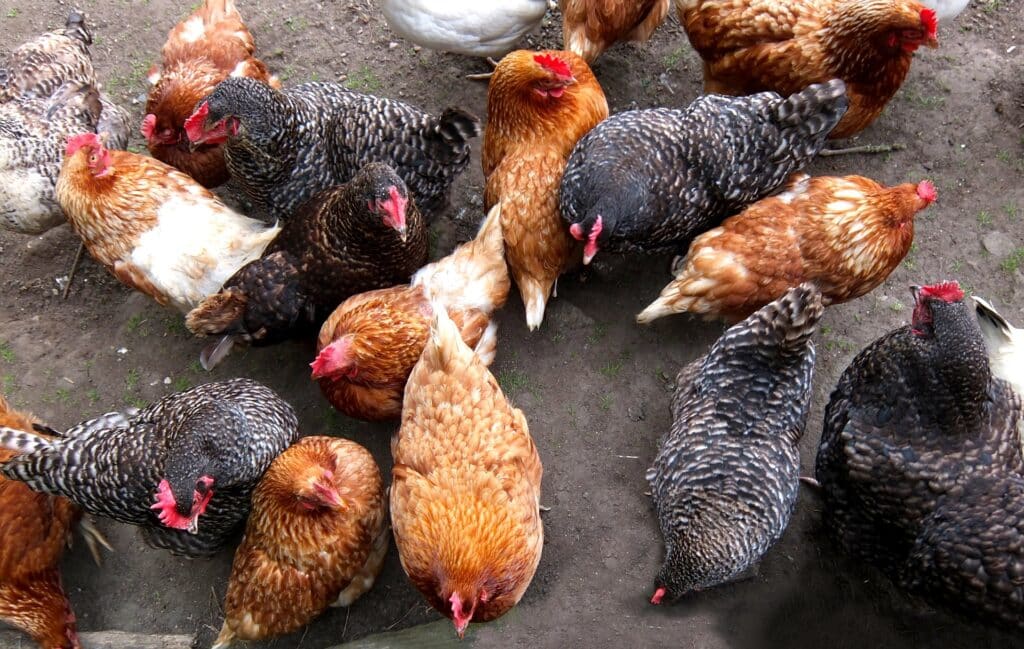
Yes, chickens can eat raspberries, they contain vitamins and minerals. It’s best to feed raspberries to chickens in small portions because raspberries are high in sugar. If fed excessively then it can lead to obesity or digestive problems. Before feeding raspberries to your chickens, make sure they are washed thoroughly and cut into small pieces.
Yes, chickens can eat oranges but most of the time they do not tend to like them. Oranges are a nutritious and healthy addition to your chickens’ diet.
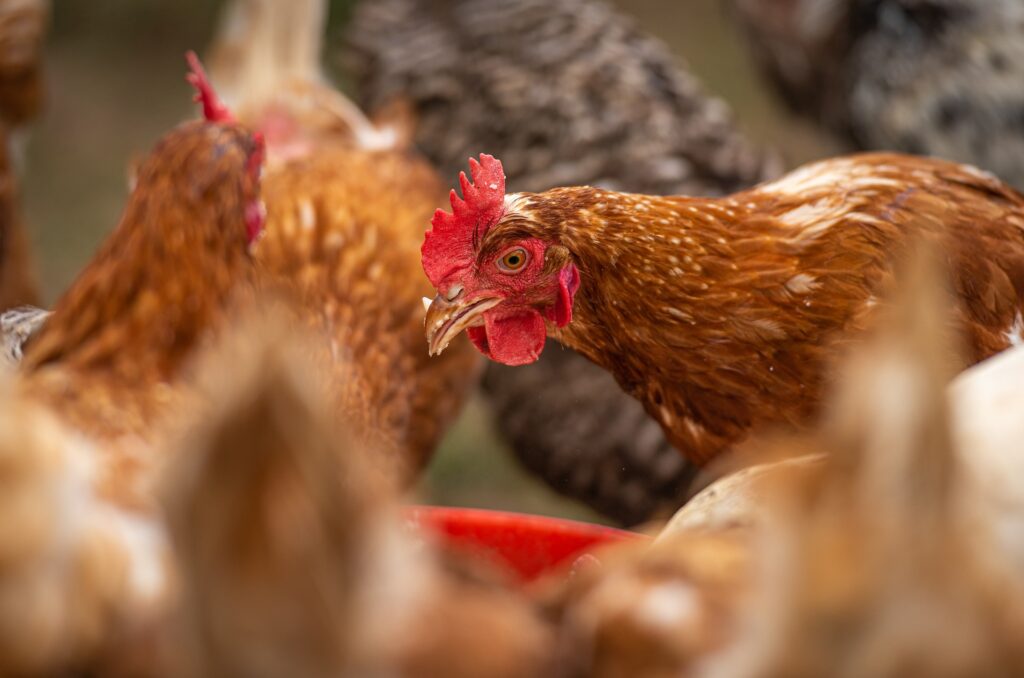
Kiwis are among the fruits that chickens can eat. Kiwi is not toxic to chickens and can be a good source of vitamins and minerals. Feeding your chickens kiwi can have potential benefits.
When feeding kiwi to your chickens, make sure that they are ripe and cut into small pieces in order to avoid choking hazards. Even though the skin is highly nutritious, remove the kiwi skin before feeding it to them because it can be difficult to digest. But if your chickens approve of the taste and texture of the skin, then they can benefit more.
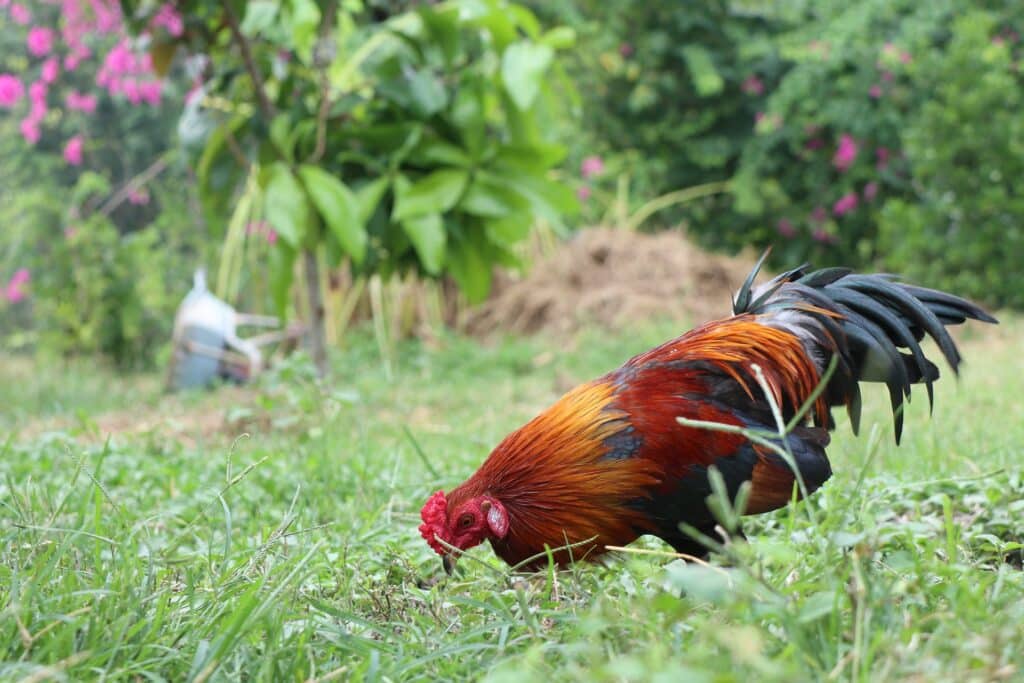
YES! Feeding chickens blackberries can give them health benefits. They are a good source of vitamins C and K, blackberries also contain fiber and antioxidants. These nutrients can help support and strengthen the overall health of your chickens. It can promote
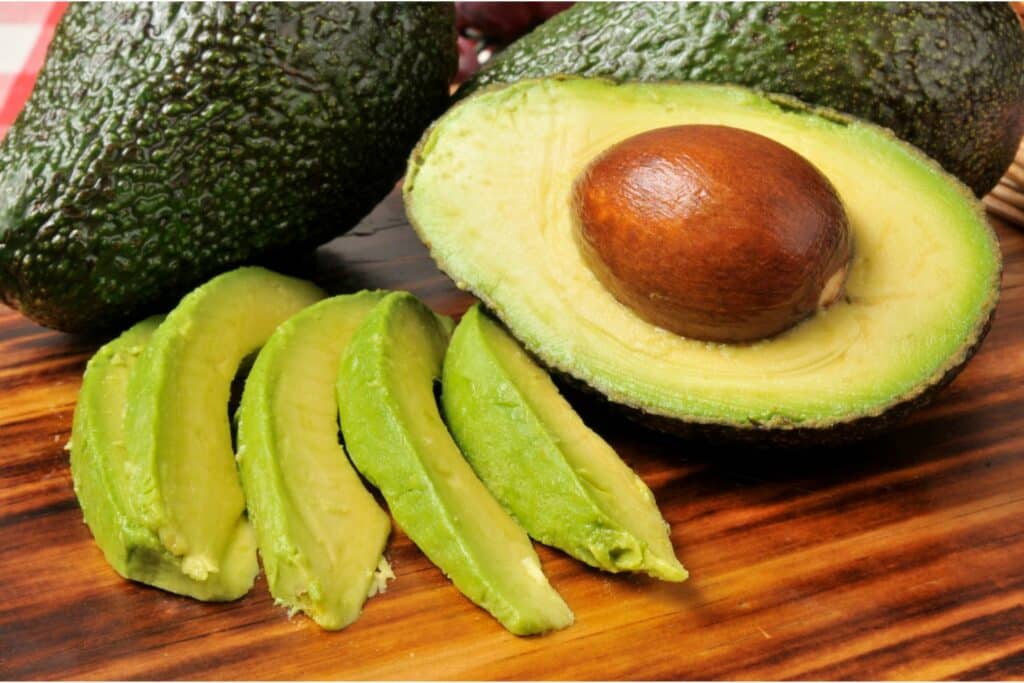
NO
It is not recommended to feed your chickens avocados. Avocados contain a substance called persin, which can be toxic to many animals. Persin can cause respiratory distress, weakness, and sudden death in chickens. Persin can be found in the leaves, bark, skin, and seed of the avocado fruit and can cause heart damage. In addition, avocados also contain high-fat content which can cause health problems to chickens if consumed in excess. This can lead to obesity, liver damage, or other health issues.
How can I know if my chickens consumed avocado? There are a few signs that can let you know that your chickens consumed avocados. Those signs may include lethargy, difficulty breathing, weakness, and sudden death.
If you suspect that your chickens ate avocados, it is important to seek veterinary care immediately.
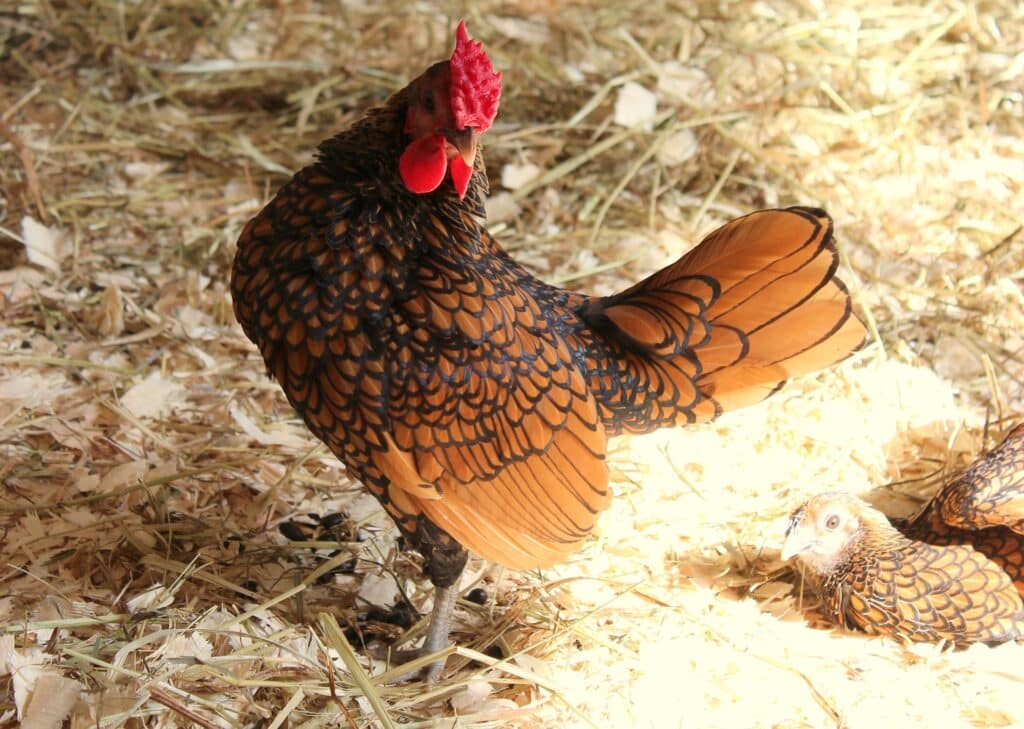
Can chickens eat mangoes? They definitely can! Mangoes are a good source of essential vitamins and minerals such as potassium, and vitamins C and A. These nutrients are important for maintaining good health and supporting and strengthening the immune system. Mangoes also contain antioxidants that help to protect cells from damage. Mangoes are also high in fiber which can help improve digestive health and prevent gastrointestinal issues in chickens.
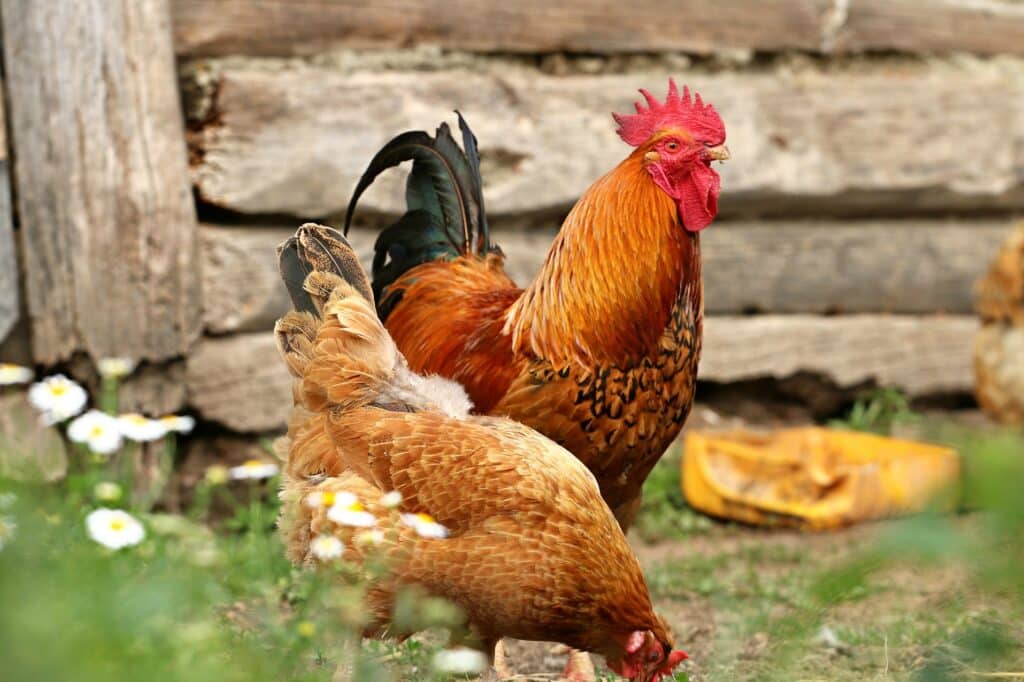
Watermelon rind is safe for chickens, so yes, they can eat it. Watermelons contain high levels of fiber and other important vitamins and minerals. You can find Vitamin C and Potassium in watermelons. Although watermelon rind is safe for chickens, it is important to consider only feeding them in moderation because too much can cause digestive issues. Always clean your watermelon rind before feeding it to your chickens. Also, don’t feed your chickens watermelon rind that has been exposed to pesticides or other harmful chemicals.
Peaches are a luxurious fruit for your chickens, yes they can eat it. Peaches are low in calories but contain minerals and vitamins that your chickens need. When feeding peaches to your chickens, make sure you wash them and cut them into small pieces, and remove the pit.
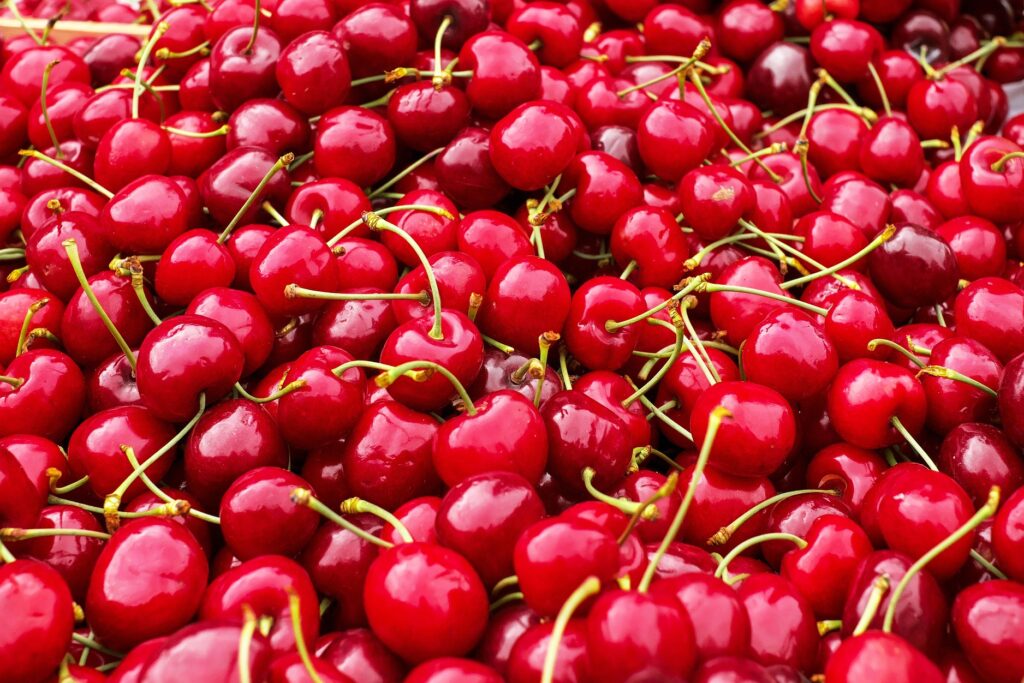
Yes, chickens can eat cherries! Cherries can serve as a tasty snack for your chickens. However, they shouldn’t be replaced with their regular diet. Also, cherries are high in sugar, so consider giving them in moderation. Your birds will enjoy eating cherries.
Cantaloupes are nutritious and healthy, They are a good source of vitamins, fiber, and minerals. So, yes, chickens can eat cantaloupe. However, it should serve as a treat, and be sure to remove the rind and the seeds before feeding your chickens cantaloupe.
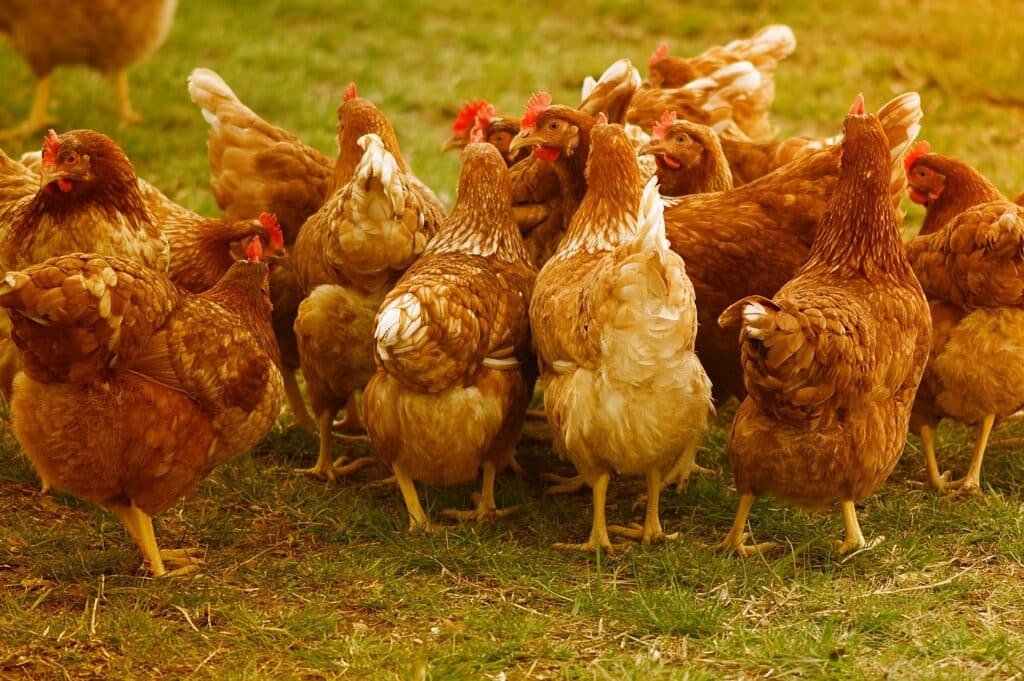
Yes, chickens can eat watermelons! It is a healthy and nutritious treat for them. Watermelons are low in calories and high in vitamins A, C, and potassium. Chickens are more than happy to eat and dig through the watermelon, just cut it up in half and let them do their things.
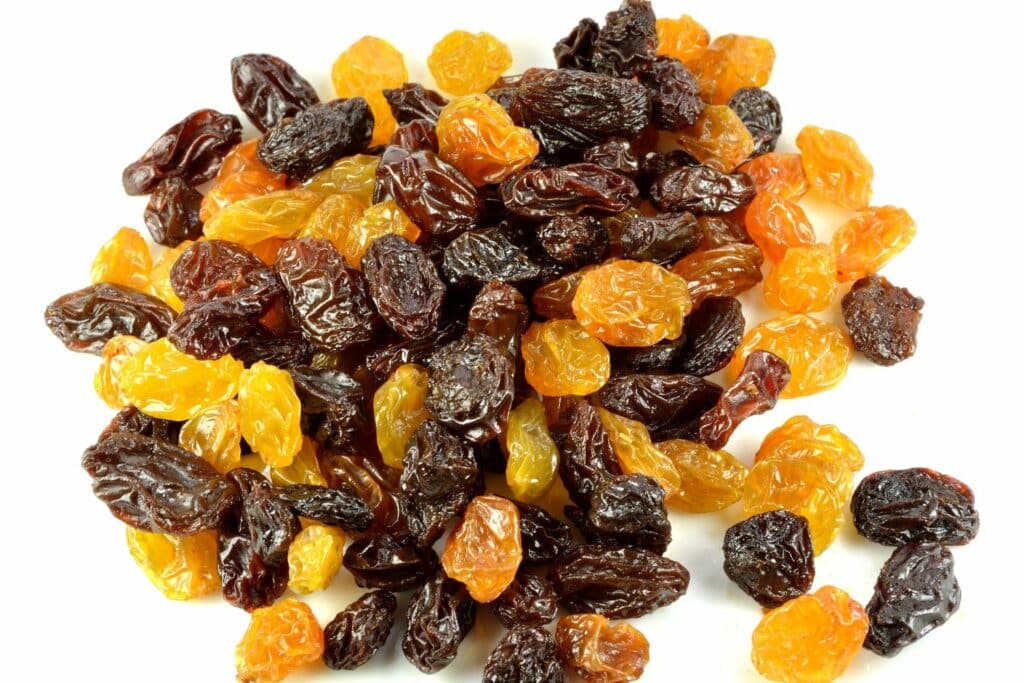
Technically chickens can eat raisins, but it is not recommended to feed them regularly. Raisins are dried fruit and can be high in sugar, they can also be a choking hazard. Chickens should be fed raisins moderately and as a supplement to their diet.
Yes, chickens can eat pears. Although chickens can eat pears, avoid feeding them the seed from it, as they contain cyanide that causes digestive problems. Make sure you remove the pear’s seed and core before feeding them.
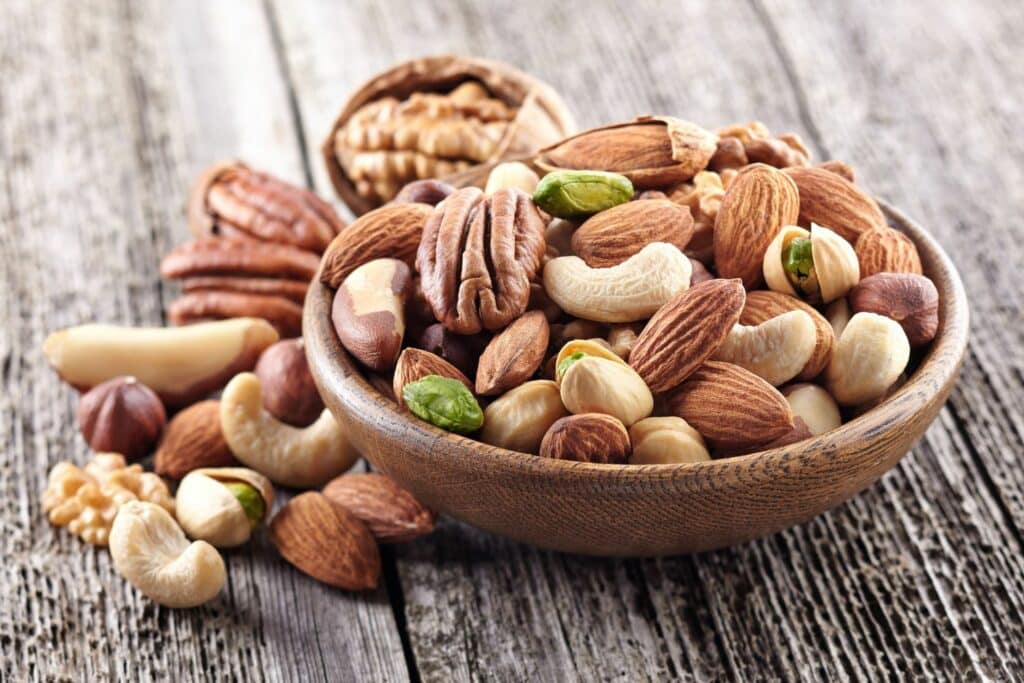
In moderation, yes chickens can eat nuts. Nuts are a good source of protein and healthy fats. Although, nuts are high in calories and can be difficult for chickens to digest. Avoid giving your chickens any nuts that are moldy or rancid, because that can be harmful to their health. Also, avoid giving nuts to your chickens as a main source of nutrition.
Some types of nuts that are safe for chickens to eat include walnuts, peanuts, and almonds.
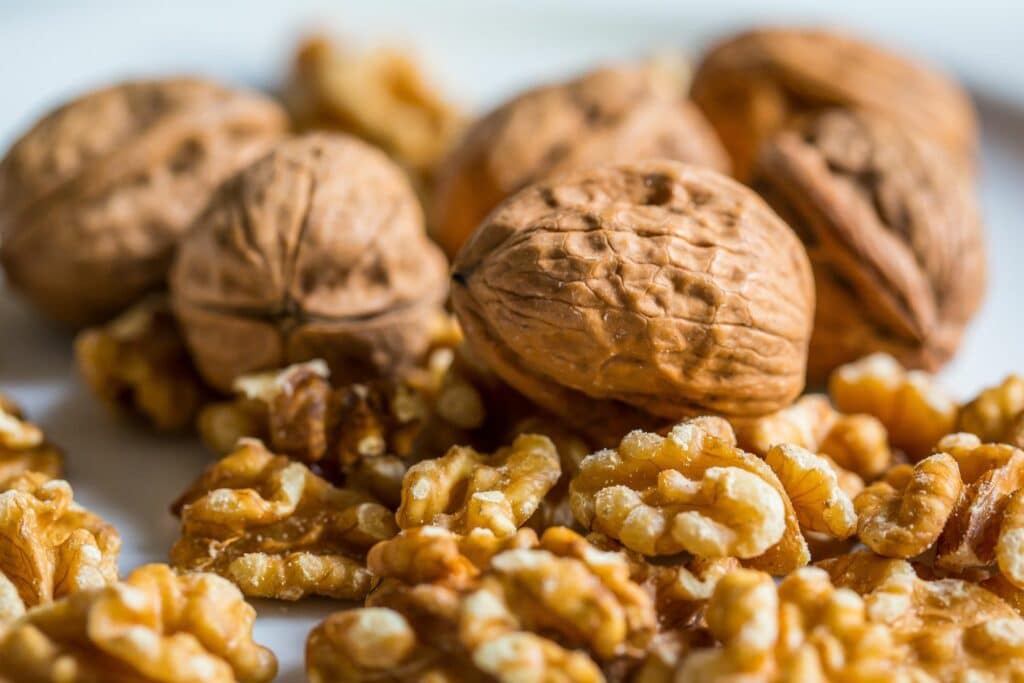
Chickens can eat walnuts but they should be given in moderation because walnuts are high in fat and can be difficult for chickens to digest if they consume in large quantities. They should also be shelled and chopped in order to prevent choking or crop impaction to the chickens.
Benefits of Walnuts to chickens
Yes, chickens can eat peas. Peas can be a good source of fiber, protein, vitamins, and minerals for your birds. You can feed your chickens fresh or frozen peas, but try avoiding canned peas because they can be high in sodium.
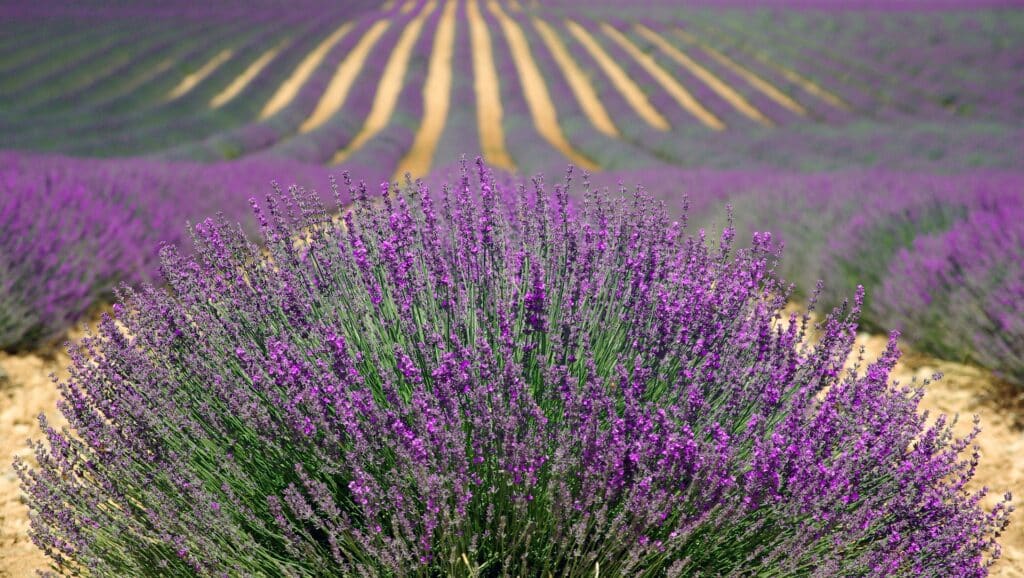
If you have been looking for something that can help your chickens with their respiratory and digestive systems, herbs are a good source for that. However, it is important to avoid feeding chickens a large number of herbs. It is also advised to know which herbs are safe for your chickens and which ones aren’t.
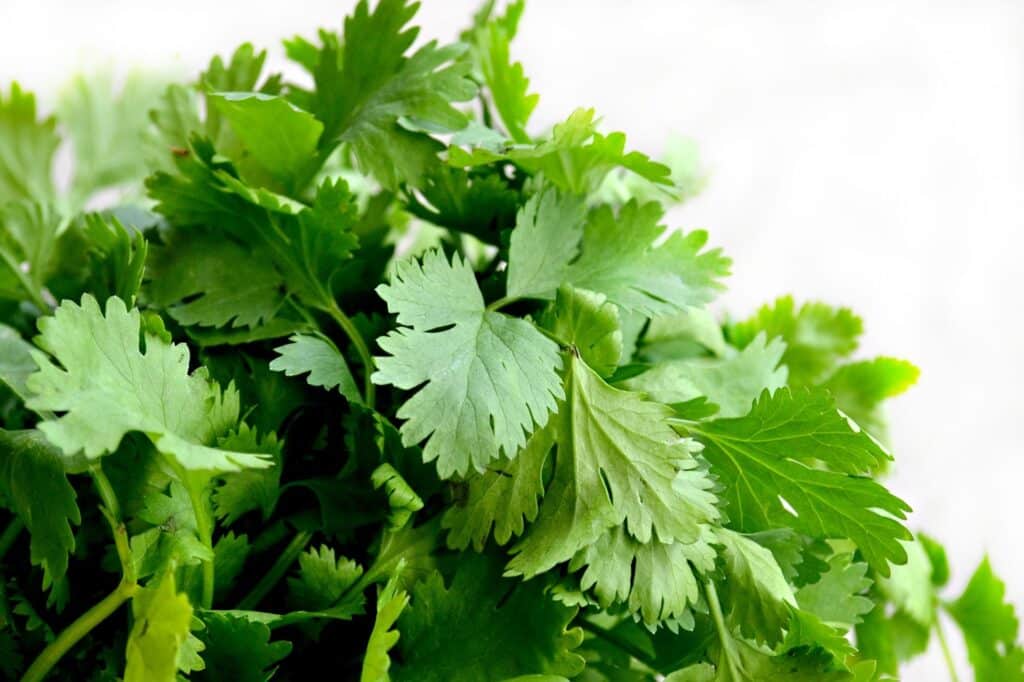
Yes, chickens can eat cilantro. Although, it is important to know that while cilantro is safe for chickens to eat, some chickens may not like the taste or smell of it. If your chicken doesn’t enjoy the smell of cilantro or refuses to eat it, do not force it on them. It is important to introduce your chickens to cilantro slowly so that they can tolerate it.

No, chickens should not eat chocolate. Chocolate contains toxic elements such as theobromine and caffeine that are dangerous to many animals, including chickens. Side effects of consuming chocolate can be vomiting, diarrhea, increased heart rate, and even seizures, or can cause death. Keep chocolate away from your chickens or other animals.
Yes, chickens can peanut butter but in limited quantities. It is important to note that one tablespoon of peanut butter gives almost double the amount of protein that a normal-breed hen needs to consume in a day. Make sure you give them in very small amounts because peanut butter is high in fat and can lead to obesity and other health issues.
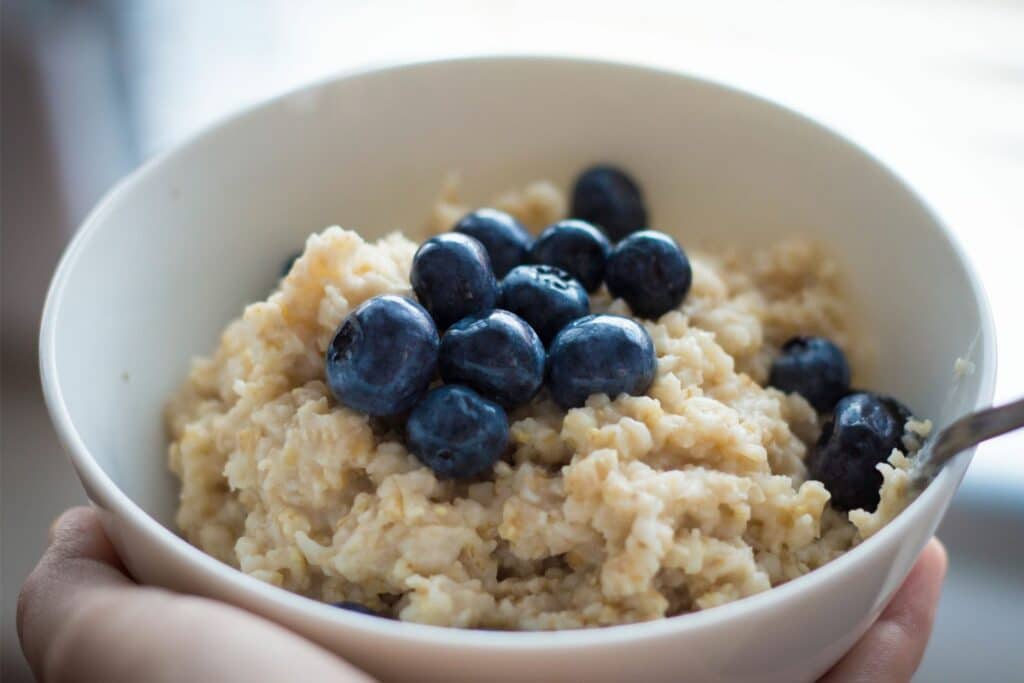
Yes, chickens can eat oatmeal in moderation. Oatmeal is rich in protein, fiber, and essential nutrients. Even though it is a nutritious and healthy treat for your chickens, it is advised you feed them occasionally because they contain beta-glucan. You can feed your chickens either cooked oatmeal, mixed with fruits or oatmeal as a component of a homemade treat for your chickens. Avoid feeding your chickens flavored oatmeal with added sugar, this can be harmful to them.
As mentioned earlier, chickens are omnivorous animals and can eat a variety of foods, including vegetables, fruits, grains, and protein sources like insects and small animals. However, there are certain foods that chickens should avoid, such as salty and sugary treats, avocados, and raw or dried beans. These foods can cause health problems and even be fatal for chickens. As a chicken owner, it is important for you to provide a balanced and nutritious diet to your flock.
As you introduce new foods to your chickens, it is a good idea to introduce them gradually and keep an eye on your chickens and their reactions to the foods. To ensure a healthy and long life, be mindful of what your chickens can and cannot eat. Check out this website for poultry feed and treats for your birds.

You can’t have backyard friends without a shelter for them! Happy Farmer’s Mobile Coops and Tractor Coops are a great addition to your backyard environment and protection for your flocks. Our coops are designed to protect your birds while giving them the freedom they need. We offer mobile chicken coops as well as mobile coops for turkeys and ducks.

Get Free Nationwide Shipping (lower 48 states) on all mobile coops, tractor coops, and accessories.
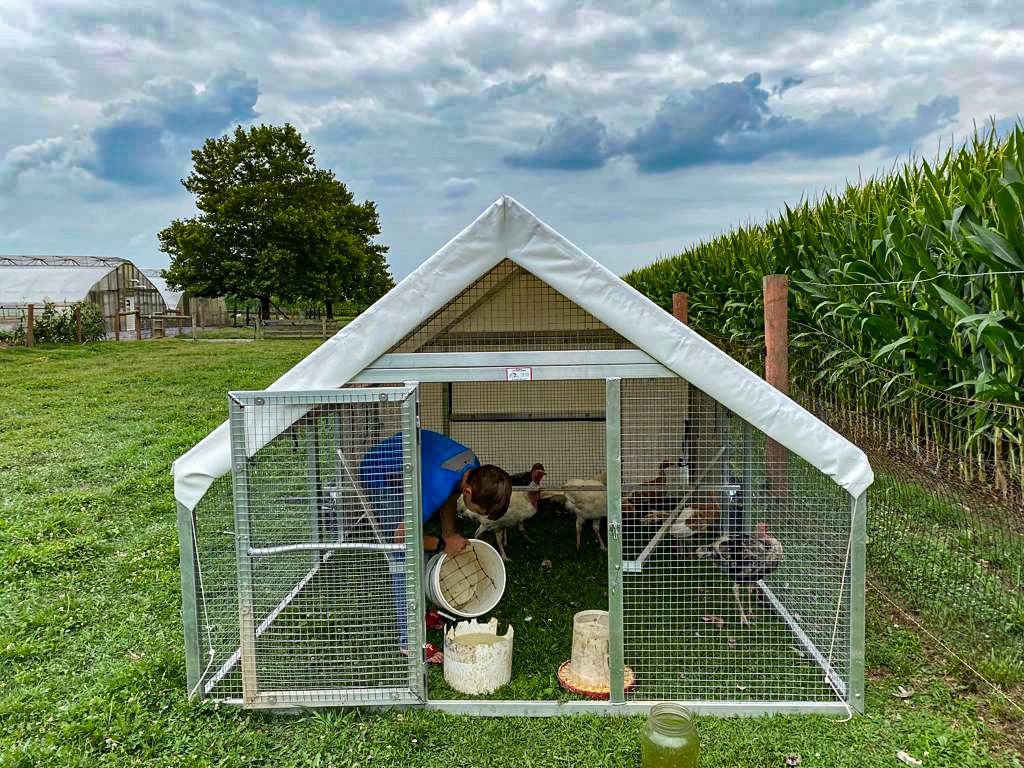
If you are looking for one or multiple mobile coops for a farm, school, or other use we would be happy to quote a price for you. Fill out the form and we will be in touch!